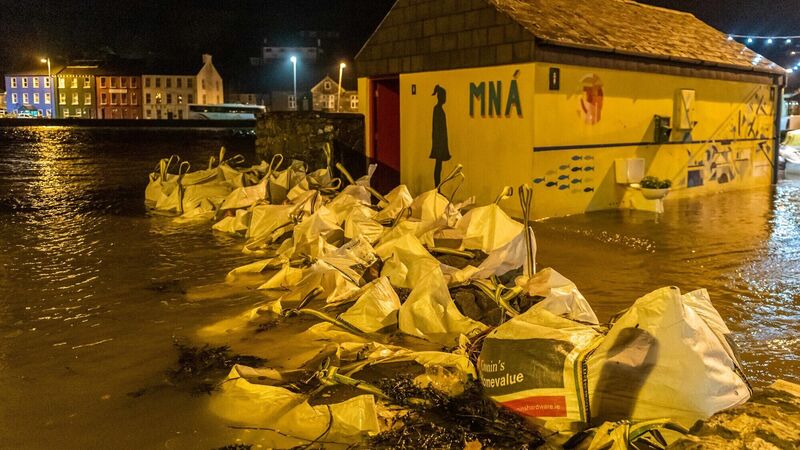Guidance warns Ireland to prepare for rise in 'extreme weather events' in the future

Sandbags piled up in Bantry which flooded after Storm Barra in December 2021. The climate guidance sent to meteorologists in Met Éireann said: “Irish rainfall patterns are expected to change, with an increase in both dry periods and heavy rainfall events.” File photo: Andy Gibson/PA
Advice given to forecasters in Met Éireann said Ireland needed to prepare itself for much heavier rainfall, storm surges and coastal flooding, as well as the growing “likelihood of extreme weather events”.
The climate guidance was sent to meteorologists in June amidst a summer of freak weather events globally including record-breaking temperatures, catastrophic flooding, and out-of-control forest fires.
Check out the Irish Examiner's WEATHER CENTRE for regularly updated short and long range forecasts wherever you are.













